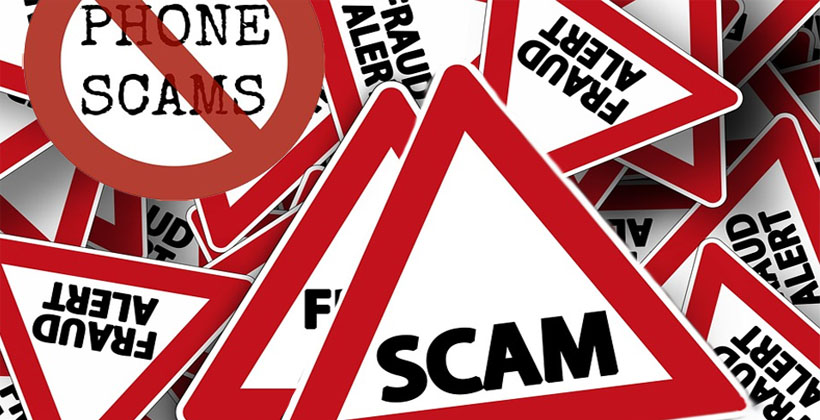SCAMMING IN THE TRANSPORTATION INDUSTRY
Article by Igor GavricJust like in any industry, there is a few scams which take place in the trucking industry. Knowing when you're about to take part in a scam is half the battle. Here are a few pieces of advice, which may save you from being scammed.
ComCheck or T-Check scams are the strongest out there, as people can produce all sorts of fake identification, making it easy for them to cash a ComCheck or T-Check at any truck stop location, or cashing place with next to no consequences.
Educating your drivers to keep their information private is the first step, the next step is to know your drivers well, which is a lot harder than it may appear, especially for larger companies out there, which is the reason why they are the most likely targets. Third step is having real time information on your drivers, like a satellite system or equipment tracker.
The following is a real event, which took place this year.
Phone rings in the dispatch, and the person on the other end claims he is a Michigan State Police officer, who claims a JB Hunt Flat-Bed lost a part of it's load an hour prior to the phone call, in front of our driver, who then ran over it, causing damage to the truck our driver is operating, making it immobile.
The person on the phone had our driver's information, first and last name, truck license plate number, make, model, color of the truck, trailer, and load information. To add to this, he knew the driver is using electronic logging device, and the driver was using mostly satellite to contact us due to the fact his cellular phone was broken and out of service.
He mentioned we might want to speak to the driver regarding the fact he was using two log books, one being paper and other one electronic, but he was not so much concerned about it, as he is just trying to get the roadway opened up to traffic, and requested a ComCheck number for a mechanic he called in order to patch up the truck so it can be moved off the roadway, and the reason he is calling is due to the fact the driver has no cell phone, and he wanted to move things along, so we do not think the mechanic calling is a scam. After asking to speak to the driver, dispatch was told the driver is assisting the mechanic in the repair. So at this point, what would you do? Issue the ComCheck for the requested money, or investigate further?
Investigation, which can be done quickly, can be the best method in ensuring you're not being scammed. Figure out how to stall the person on the line, perhaps by convincing them the person issuing the ComChecks stepped out to the washroom, or perhaps checking the account to make sure the money is available and the check does not bounce. Anything which sounds realistic will suffice.
Larger companies have procedures in place, which slows down the ComCheck issuing process. Having equipment locating device on your truck and trailer at this point, is beneficial, as you can see almost exactly where your equipment is located, by simply refreshing your on-screen map. If the driver is located near or at the location of the said area, it is a good idea to somehow get a hold of this driver or demand to speak to them at this point.
Another event took place inside the consignee's building, where upon completing the unloading process, a driver was met by the person who claimed he was the lumper, who unloaded his load, and wanted to get paid. Being in this situation, the driver should be cautious about handing out that ComCheck, as even though it is inside the building, the said lumper was not a part of the unloading process. Simply by checking with the receiver (where you pick up the paperwork), your driver may avoid being scammed.
Make sure to train your drivers properly, and instruct them to not give out information, but also to give out false, or fake information, which will raise an obvious red flag. Example: When the driver is asked his/hers last name, it should raise a flag. This information is asked by someone who may be probing the driver in order to find out more information. Drivers, if uncomfortable with speaking their last name, should be making the last name up. When the driver is asked what they carry currently, or what they normally carry, their response should be a totally useless and load with little to no value, like donated used rags, if operating a van trailer, or perhaps rejected or damaged load of vegetables, if operating a refrigerated trailer, which has the system showing the temperature. Make it seem like you're hauling something totally useless, so there is less of a chance of someone wanting what is inside your trailer. Scammers and thieves know how to spot a valuable load, and if they have a lane to get rid of it, they will attempt to take it.

